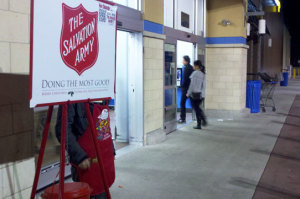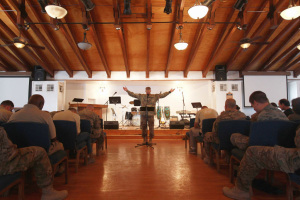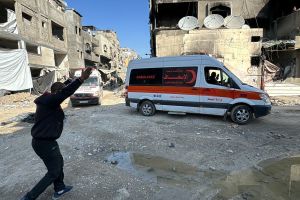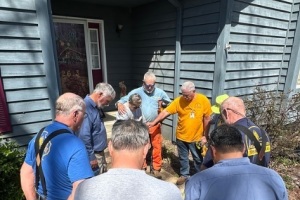Ty Carter on the Medal of Honor: Too Much 'Pain and Loss' Required to Receive Award (VIDEO)
U.S. Army Staff Sergeant Ty Carter will be awarded a Medal of Honor Wednesday afternoon at the White House.
One of 53 soldiers belonging to the Army's Black Knight Troop at Command Outpost Keating, Carter still has fresh memories from an incident the occurred on Oct. 3, 2009. It was on that day near the Nuristan Province of Afghanistan that eight soldiers were killed and more than 25 injured.
On Monday Carter will receive a Medal of Honor, a rare military distinction, for attempting to save the lives of his troop members on that fateful day. But while he is honored to be recognized for his effort, Carter explained that he would not wish such an award on any soldier.
"I would never tell any soldier or service member, 'Hey, go out and get the Medal of Honor', because of the amount of pain and loss and tears that has to be shed in order to receive it," Staff Sergeant Ty Michael Carter told NPR's Morning Edition host Renee Montagne.
Years after the event occurred, Carter can still remember the day of the attack. While he was used to being fired on, he says that particular day stood out from the beginning.
"It was as if somebody kicked an ant hill," he told Montagne. "The bullets, the rockets, the mortars, everything, a wall of spikes - they're pointing at you."
The attack would last six hours, according to Army.com. During that time Carter, "proved himself time and time again."
"He resupplied ammunition to fighting positions, provided first aid to a battle buddy, killed enemy troops, and valiantly risked his own life to save a fellow Soldier who was injured and pinned down by overwhelming enemy fire," an Army report detailed.
President Obama will confer the special award to Carter later this afternoon. But despite its distinction, Carter doesn't appear convinced that he acted out of the ordinary.
"Even though this award is an awesome honor and a great privilege, in order to get such a prestigious award, you have to be in a situation where your soldiers, your family, your brothers, are suffering and dying around you," he told NPR. "And then, you just did everything you could to save lives or prevent further loss."





























